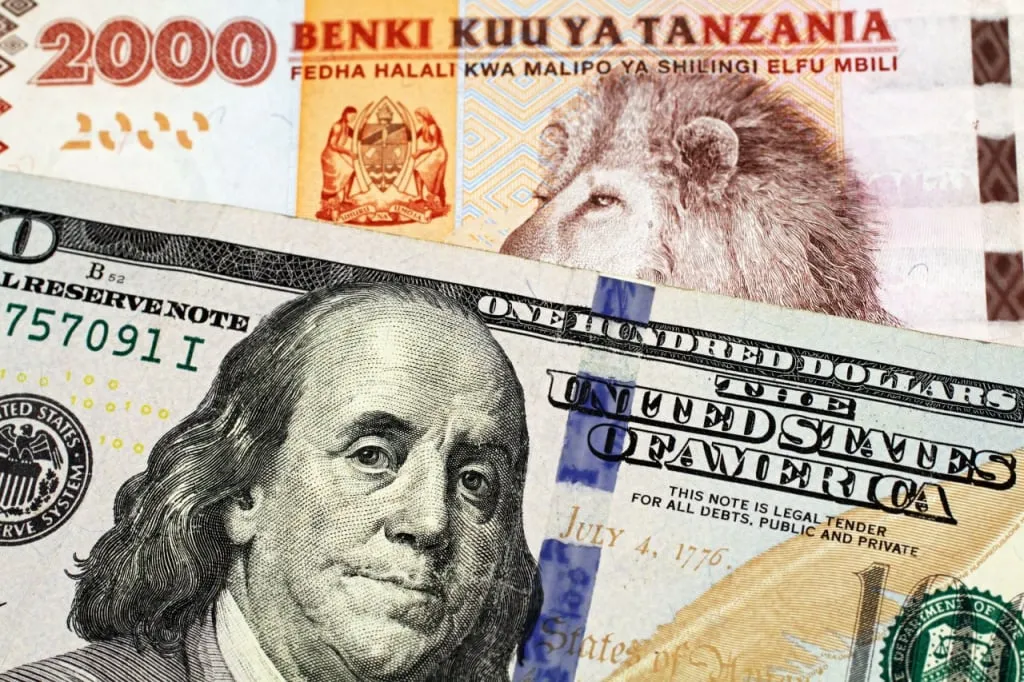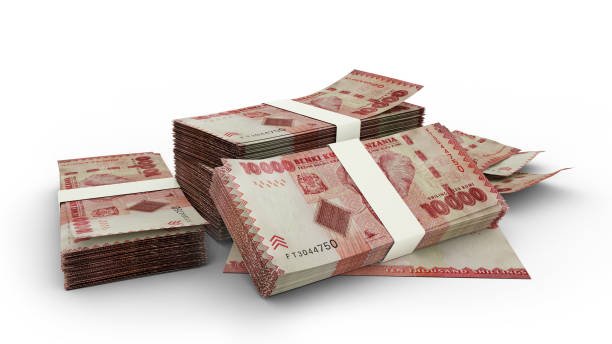Planning a trip to Tanzania is an exciting adventure filled with dreams of exploring the Serengeti, relaxing on Zanzibar’s pristine beaches, and experiencing the rich culture of this East African gem. However, before you embark on your journey, it’s essential to familiarize yourself with Tanzania’s currency, the Tanzanian Shilling (TZS). Tanzania Currency: Understanding the currency will ensure you have a smooth and enjoyable trip without any financial hiccups.
1. Introduction to Tanzanian Currency
The Tanzanian Shilling, abbreviated as TZS, is the official currency of Tanzania. It is issued and regulated by the Bank of Tanzania. The currency symbol is TSh, and it is used throughout the country, including the mainland and Zanzibar.
Currency Denominations
Tanzanian Shillings come in both coins and banknotes. The coins are available in denominations of 50, 100, 200, and 500 shillings. The banknotes are available in denominations of 1,000, 2,000, 5,000, and 10,000 shillings. Understanding these denominations will help you manage your spending more effectively during your stay.
2. Exchange Rates and Currency Conversion
Understanding Exchange Rates
The value of the Tanzanian Shilling fluctuates, so it’s essential to check the current exchange rates before you travel. As of 2024, 1 USD equals approximately 2,300 TZS, but rates can vary. It’s advisable to monitor these rates through reliable sources like banks or currency exchange services to get the best value for your money.
Where to Exchange Currency
You can exchange foreign currency at several locations in Tanzania. These include:
- Banks: Major banks like CRDB Bank, National Bank of Commerce (NBC), and NMB Bank offer currency exchange services.
- Forex Bureaus: These are available in major cities like Dar es Salaam, Arusha, and Zanzibar. Forex bureaus often offer competitive rates compared to banks.
- Hotels and Airports: Many hotels and airports offer currency exchange services, though the rates might be slightly higher.
Using ATMs
ATMs are widely available in urban areas and can be a convenient way to obtain Tanzanian Shillings. They dispense money in local currency, and you can use your international debit or credit card. However, be aware of any foreign transaction fees that your bank may charge.
3. Cash vs. Card Payments
Cash Payments
While credit and debit cards are increasingly accepted in Tanzania, especially in larger cities and tourist areas, cash is still king in many parts of the country. You’ll find that many smaller vendors, local markets, and rural areas only accept cash payments. Therefore, it’s advisable to carry enough cash, especially when traveling to remote areas.
Card Payments
Most hotels, restaurants, and shops in urban areas accept major credit and debit cards like Visa and MasterCard. However, American Express and Discover cards may not be as widely accepted. It’s always good to check with your accommodation or service providers in advance.
Mobile Money
Tanzania has a well-developed mobile money system. Services like M-Pesa, Tigo Pesa, and Airtel Money allow you to pay for goods and services using your mobile phone. This is particularly useful for small transactions and payments in areas where card payments are not accepted.
4. Budgeting for Your Trip
Typical Costs in Tanzania
Understanding the cost of living and typical expenses in Tanzania will help you budget your trip. Here’s a general overview:
- Accommodation: Budget hotels can range from $20 to $50 per night, while mid-range hotels range from $50 to $150. Luxury hotels and lodges can cost $200 or more per night.
- Food: A meal at a local restaurant might cost between 5,000 and 15,000 TZS, while dining at a mid-range restaurant could cost between 15,000 and 30,000 TZS.
- Transportation: A short taxi ride within a city might cost around 10,000 TZS, while a bus ride could be as low as 1,000 TZS.
Tipping Culture
Tipping is not mandatory in Tanzania but is appreciated, especially in the tourism and service industries. It’s common to tip safari guides, hotel staff, and restaurant servers. A tip of around 10% is generally sufficient, though for exceptional service, you might want to tip more.
5. Safety and Security of Your Money
Avoiding Counterfeit Currency
While counterfeit currency is not widespread, it’s still important to be cautious. Always exchange money at reputable locations and check the security features on banknotes, such as watermarks, security threads, and holograms.
Keeping Your Money Safe
Tanzania is generally safe for tourists, but petty theft can occur, especially in crowded areas. To keep your money safe:
- Use a Money Belt: Carry your money and important documents in a money belt that you can wear under your clothes.
- Split Your Money: Keep small amounts of cash in your wallet and the rest in a secure place.
- Use Hotel Safes: Most hotels offer safes where you can store your valuables.
Reporting Lost or Stolen Cards
In case your credit or debit card is lost or stolen, report it immediately to your bank. Most banks have 24/7 customer service numbers for such emergencies. It’s also a good idea to keep a backup card in a separate location.
6. Customs and Declarations
Currency Limits
When entering or leaving Tanzania, you are required to declare any amount exceeding $10,000 or its equivalent in foreign currency. This is in line with international regulations to prevent money laundering and other illegal activities.
Carrying Foreign Currency
While there are no restrictions on the amount of foreign currency you can bring into Tanzania, it’s advisable to carry a mix of USD and TZS for convenience. USD is widely accepted, especially in tourist areas, but having Tanzanian Shillings will be essential for local transactions.
7. Tips for First-Time Travelers
Learn Basic Kiswahili Phrases
While English is widely spoken in Tanzania, learning a few basic phrases in Kiswahili can enhance your travel experience and help in day-to-day transactions. Common phrases like “Asante” (Thank you) and “Shilingi ngapi?” (How much?) can go a long way.
Plan for Currency Conversion Fees
When exchanging currency or withdrawing money from ATMs, be mindful of the conversion fees. Some banks and forex bureaus might charge higher fees, so shop around for the best rates.
Keep Small Bills Handy
Small bills are handy for tipping, paying for small purchases, or using public transportation. Many vendors may not have change for large bills, so it’s best to carry smaller denominations.
Be Prepared for Bargaining
Bargaining is a common practice in local markets and with street vendors in Tanzania. While not applicable in supermarkets or established stores, bargaining can help you get a better price for souvenirs and other items.
8. Conclusion
Understanding Tanzania’s currency and financial practices will make your trip more enjoyable and stress-free. From knowing where to exchange money to being aware of local customs, these tips will help you navigate your financial transactions with ease. As you plan your adventure to Tanzania, being well-prepared will ensure that you can focus on enjoying the stunning landscapes, rich culture, and unforgettable experiences that this beautiful country has to offer.
By keeping these tips in mind, you’ll be ready to make the most of your Tanzanian adventure without any financial worries. Safe travels!



